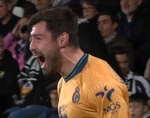
Croatian Foreign Minister Gordan Grlic Radman said in Stolac, southern Bosnia and Herzegovina, on Sunday that Croats in that country had survived despite the many predicaments such as the Bleiburg tragedy, expressing an expectation that they would achieve full equality in relation to the other two constituent peoples.
Oglas
Grlic Radman visited Stolac to attend a commemoration for the victims of the Bleiburg tragedy and death marches, known as the Way of the Cross in Croatia.
"The pits here were full of civilians killed without a trial. Those were crimes of torture and murder committed out of revenge," the minister told reporters at Radimlja near Stolac.
He added that Croats in Bosnia and Herzegovina had survived despite everything and that today nobody had the right to deny them the right to a home.
Croatia respects the sovereignty and territorial integrity of Bosnia and Herzegovina, Grlic Radman said, adding that he expected full equality for the Croats in Bosnia and Herzegovina.
"We expect limited changes to (BiH's) Constitution and the Election Law to guarantee political participation to Croats at all levels of BiH institutions," he said.
The international community's High Representative, Christian Schmidt, said earlier this week, in a comment on the commemoration, that it must not be used to downplay crimes committed during World War II by Nazi forces and their allies.
He also said that displaying Ustasha and other Fascist symbols was insulting.
Asked about Schmidt's statement, Stolac Mayor Stjepan Boskovic said that the commemoration would not compromise "the victims, of whom many were innocent", and that they just wanted to pay tribute to and pray for them.
Tens of thousands of Croatian civilians and soldiers of the defeated pro-Nazi Independent State of Croatia (NDH) surrendered to Allied forces at Bleiburg, Austria in May 1945, but were handed over by British troops to Tito-led Yugoslav Partisan forces.
Some were executed on the spot, while many perished during death marches, known in Croatia as the Way of the Cross, on their way back to Yugoslavia in the second half of 1945.
Kakvo je tvoje mišljenje o ovome?
Učestvuj u diskusiji ili pročitaj komentare
Oglas
Kakvo je tvoje mišljenje o ovome?
Učestvuj u diskusiji ili pročitaj komentare
Oglas
NAJČITANIJE
Oglas
Oglas
Najnovije
Oglas
Oglas





 Srbija
Srbija
 Hrvatska
Hrvatska
 Slovenija
Slovenija



























































